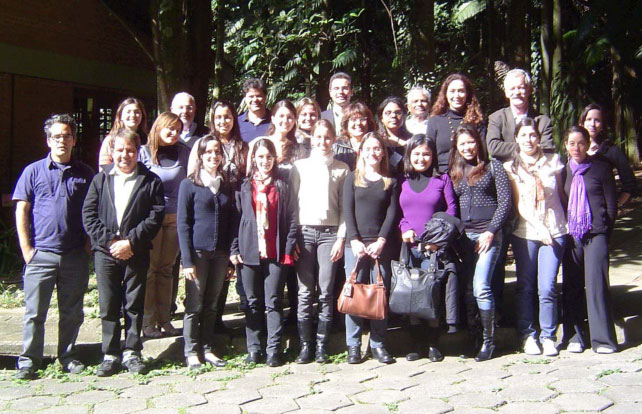and Research Advances and Progress in Immunology Symposium
Department of Immunology, Institute of Biomedical Sciences, University of São Paulo, Brazil

The main goal of this course was to promote the study of Advanced Topics of Immunology to young graduate students in Brazil and other Latin America through the participation and interaction with renowned immunologists from Brazil and around the world. A total of 31 students from Latin American Countries participated in all lectures and discussions of selected papers. Nearly 100 participants attended the Symposium, including the students enrolled in the course. We received 6 students from Argentina, 2 from Peru, 1 from Uruguay, and in addition 1 PhD student from Pakistan. All other students came from different parts of Brazil. The IUIS funds were split equally between students from Argentina, Peru and Uruguay. The course counted on the participation of 6 invited immunologists: 3 from overseas – Dr. Mohamed R. Daha, Dr. Miguel Soares and Dr. Jos van Strijp – and 3 from Brazil – Dr. Marcello Barcinski, Dr. Mauricio M. Rodrigues and Dr. Ana Paula Lepique. Each professor gave a 90-minute Master-Class, which was followed by intensive study sessions where important papers were discussed. Of equal importance was the unique opportunity for the students to interact with the lecturers.
The lecture topics for the course included: Complement System: Linking Innate to Acquired Immune Response; Innate Immune Evasion: The experimental approach; Immune evasion Mechanisms acquired by Plasmodium vivax; Apoptosis and apoptotic mimicry: the Leishmania connection; Immune evasion of tumor cells; Damage Control: An Integral and Essential Component of Immunity.
The symposium had the following presentations: Bacterial Innate Immune Evasion; Role of the complement system in autoimmune diseases; New strategies to generate protective immunity against protozoan parasites; Apoptotic mimicry in host/pathogen interaction: modulation by the host immune response; Sickle Hemoglobin Confers Tolerance to Plasmodium infection.






